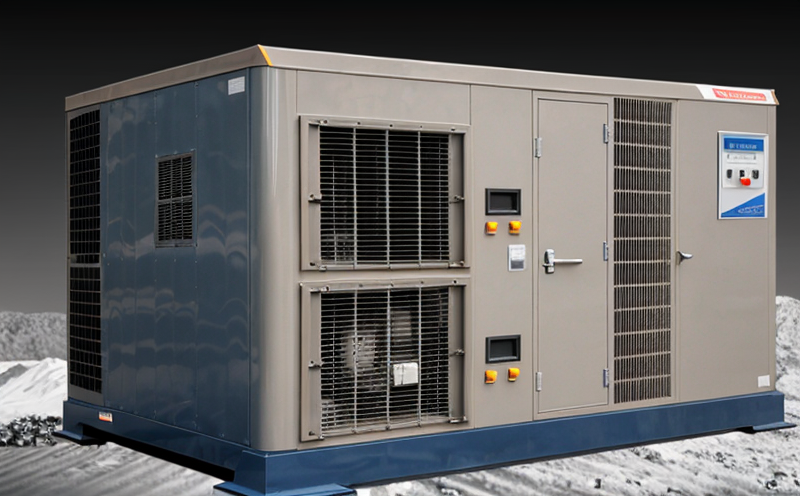JED EC JESD22-A123 Reverse Bias Temperature Stress Testing
The JEDEC JESD22-A123 standard defines a method for testing the reverse bias temperature stress (RBTS) of semiconductor devices, particularly focusing on diodes and other similar electronic components. This type of stress testing is crucial for ensuring that semiconductors can withstand extreme environmental conditions, which is essential in various sectors including aerospace, automotive, and consumer electronics.
The JESD22-A123 protocol involves subjecting the device under test (DUT) to a reverse bias voltage while increasing the temperature. This procedure simulates real-world conditions where devices may experience high temperatures combined with reverse voltages. The objective is to identify any potential failure modes that could compromise the integrity and reliability of the semiconductor.
The testing process requires precise control over both the applied voltage and the ambient temperature, which are critical factors in determining the success or failure of a component under RBTS conditions. This service ensures compliance with international standards such as JEDEC JESD22-A123, providing clients with accurate results that can be used to improve product design and reliability.
Our laboratory follows stringent protocols to ensure the accuracy and repeatability of test results. Our team of experts uses state-of-the-art instrumentation to perform these tests in a controlled environment. The following sections will provide more detailed information on the industry applications, quality assurance measures, customer impact, and frequently asked questions related to this service.
Industry Applications
| Industry Sector | Applications of RBTS Testing |
|---|---|
| Aerospace | Testing ensures components can withstand extreme temperatures and voltages in space. |
| Automotive | Evaluates the durability of semiconductor devices under high-temperature conditions, which is critical for automotive electronics. |
| Consumer Electronics | Verifies that components function correctly under stress, enhancing product reliability and safety. |
| Data Centers | Ensures cooling systems can handle high temperatures without affecting semiconductor performance. |
The results from RBTS testing are essential for manufacturers to ensure their products meet the stringent requirements of these industries. By identifying potential weaknesses early in the development process, companies can improve product design and enhance overall reliability.
Quality and Reliability Assurance
The JEDEC JESD22-A123 reverse bias temperature stress test is a critical part of ensuring the quality and reliability of semiconductor devices. This testing protocol helps to identify any potential issues that could arise when components are subjected to high temperatures combined with reverse voltages.
Our laboratory adheres strictly to the specified test parameters, which include precise control over the applied voltage and temperature. The apparatus used for this test includes specialized equipment capable of generating high-voltage signals and accurately measuring temperature changes. Acceptance criteria are based on industry standards such as JEDEC JESD22-A123.
The test process typically involves conditioning the device at room temperature, applying a reverse bias voltage, and gradually increasing the temperature while monitoring for any signs of failure. The duration and conditions of the test can vary depending on the specific requirements of the client or industry standards. Our team provides detailed reports that document all aspects of the testing process, including observed data points and conclusions drawn from the tests.
By following these rigorous procedures, we ensure that our clients receive accurate results that can be used to improve product design and reliability. This service is essential for maintaining high-quality standards in semiconductor manufacturing and ensuring products meet stringent regulatory requirements.
Customer Impact and Satisfaction
- Enhanced product reliability through early identification of potential issues.
- Prompt resolution of any discrepancies found during testing.
- Informed decision-making based on accurate test results.
- Improved design processes resulting in more robust semiconductor devices.
- Compliance with industry standards such as JEDEC JESD22-A123.
- Increased confidence in product quality and performance under stress conditions.
We strive to provide our clients with a seamless testing experience, ensuring they receive the highest level of service. By adhering to strict protocols and using advanced instrumentation, we can deliver accurate results that meet or exceed industry expectations.





